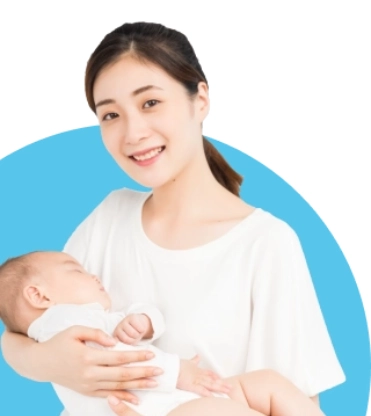Youmi Service Process
-
.png)
Make a request
Fully understand the client's family situation and requirements for the aunt
-
.png)
Filter and recommend aunties
Strictly select 3-5 service personnel according to customer needs
-
.png)
Online interview
Arrange service personnel to conduct online interviews, and sign contracts only after customers are satisfied
-
.png)
Contract signing service
Free replacement of domestic service personnel during the service period
Service Star
-

Gold Medal Maternity Nanny
.png)
-
Name:yellow
-
age:40
-
Education:high school
-
experience: 7 years
-
height:160cm
-
weight: 56kg
January 2016 - Present
Online Consultation
In 2016, I mainly worked as a baby nanny and confinement nanny.
2018: Raising a baby from 2 months to 14 months
In 2019, take care of the baby for 15 months until the mother gives birth to the second child, and take care of the second child until 5 months
How to take care of your baby until 5 months old in 2020
2021 Baby -
-

Gold Medal Maternity Nanny
.png)
-
Name:yellow
-
age:40
-
Education:high school
-
experience: 7 years
-
height:160cm
-
weight: 56kg
January 2016 - Present
Online Consultation
In 2016, I mainly worked as a baby nanny and confinement nanny.
2018: Raising a baby from 2 months to 14 months
In 2019, take care of the baby for 15 months until the mother gives birth to the second child, and take care of the second child until 5 months
How to take care of your baby until 5 months old in 2020
2021 Baby -
-

Gold Medal Maternity Nanny
.png)
-
Name:yellow
-
age:40
-
Education:high school
-
experience: 7 years
-
height:160cm
-
weight: 56kg
January 2016 - Present
Online Consultation
In 2016, I mainly worked as a baby nanny and confinement nanny.
2018: Raising a baby from 2 months to 14 months
In 2019, take care of the baby for 15 months until the mother gives birth to the second child, and take care of the second child until 5 months
How to take care of your baby until 5 months old in 2020
2021 Baby -
Frequently asked questions
-

What should caregivers pay attention to when taking care of elderly people living alone?
Safety: Ensure the living environment is safe and remove potential tripping items. Install necessary safety equipment such as anti-slip mats, handrails, etc. Health monitoring: Regularly measure basic vital signs such as blood pressure and pulse. Pay attention to changes in the elderly's mood and pay attention to whether there are signs of depression or anxiety. Diet care: Provide a balanced diet to ensure that the elderly have enough nutrition. Pay attention to whether the elderly have special dietary needs or food allergies. Medication management: Assist the elderly to take medication on time and ensure that they follow the doctor's orders. Check the inventory of medicines regularly to prevent expiration. Social interaction: Encourage the elderly to participate in social activities to reduce loneliness. Chat with the elderly regularly and pay attention to their mental health. Daily life support: Assist the elderly in daily life activities, such as bathing, dressing, drinking water, etc. Ensure that the elderly have enough rest time. Emergency handling: Familiar with emergency telephone numbers and hospital addresses in case of emergencies. Learn basic first aid knowledge and be able to handle minor accidents. Communication skills: Communicate with the elderly in simple and easy-to-understand language and listen patiently to their needs and feelings. Respect the independence of the elderly and provide support when appropriate. Regular evaluation: Regularly evaluate the physical and mental conditions of the elderly and adjust the care plan. Keep in touch with family members and pay attention to the health and needs of the elderly. Personal emotional support: Pay attention to your own emotional state, maintain a positive attitude, and bring positive energy to the elderly. Through the above precautions, caregivers can better take care of the elderly living alone and improve their quality of life and sense of security.
-

What services do confinement nannies generally provide?
The confinement nanny generally provides the following services: Newborn care: Infant feeding (breastfeeding or formula feeding). Baby bathing, diaper changing and dressing. Infant sleep and soothing techniques. Maternal care: Postpartum recovery guidance, including diet, rest and exercise advice. Assist mothers with breast care and solve feeding problems. Observe the mother's physical condition and assist with daily care. Dietary guidance: Provide nutritious dining suggestions suitable for mothers to help recover. Prepare confinement meals to ensure balanced nutrition. Housework assistance: Perform simple household cleaning and tidying. Wash baby clothes and mother's clothes. Psychological support: Provide emotional support to mothers to reduce the risk of postpartum anxiety and depression. Conduct postpartum psychological counseling to help mothers adapt to their new roles. Parenting knowledge guidance: Provide guidance on parenting knowledge and skills to help parents take better care of their babies. Answer questions that new parents have during the parenting process. Family communication: Assist family members in communication and promote family harmony. Health monitoring: Regularly monitor the health of babies and mothers to detect problems in a timely manner. The services provided by a confinement nanny may vary depending on personal experience and family needs, but the overall goal is to help newborns and mothers spend a healthy, safe and comfortable confinement period.
-

What is the difference between a nanny and a confinement nanny?
Although both nanny and confinement nanny involve the care of infants and mothers, their duties and service objects are different. The following are their main differences: 1. Service objects Confinement nanny: Mainly responsible for the care of mothers and newborns, with an emphasis on postpartum recovery and infant care. They usually provide assistance during the confinement period of the mother. Nanny: Focus on the daily care of the baby, usually responsible for taking care of the baby for a period of time after the baby is born, which may continue until the baby is older or even before school age. 2. Service content Confinement nanny: Provide physical recovery support for the mother (such as diet, rest, psychological counseling). Newborn care (feeding, bathing, changing diapers, etc.). Housework support (simple cleaning, laundry, etc.) and food preparation. Nanny: Mainly responsible for the daily care of the baby (feeding, bathing, playing, comforting, etc.). May provide parenting knowledge and educational guidance to help parents understand and meet the needs of the baby. Pay attention to the growth and development of the baby and help establish good living habits. 3. Working hours Confinement nanny: Usually full-time care during the confinement period of the mother (usually one month). Nanny: Can be full-time or part-time, and the service time may be longer, until the baby grows to a certain age (such as 2-3 years old). 4. Professional training Confinement nanny: Usually needs to receive relevant professional training and understand knowledge in postpartum recovery, nursing technology, nutrition, etc. Nanny: Also needs to receive childcare-related training to understand infant care, developmental psychology, early education, etc. 5. Service purpose Confinement nanny: Help mothers to safely and healthily go through the postpartum recovery period and ensure the health of mother and baby. Nanny: Pay attention to the growth and development of the baby and help parents better cope with the challenges of parenting. In summary, confinement nannies and nanny differ in service content, time and objects, but both are to help families better take care of newborns and mothers to ensure their health and happiness.
-

How long does it take to hire a confinement nanny during pregnancy?
Generally speaking, it is recommended to start considering hiring a confinement nanny when you are about 7 months pregnant (about 28 weeks). This is because during this period of time, expectant mothers can learn about and screen suitable confinement nannies in advance to ensure that they can arrive on time near the due date. Some suggestions: Communicate in advance: Communicate with the confinement nanny in advance to understand their service content, experience and costs, etc. Determine needs: Before hiring a confinement nanny, you can consider the specific needs of yourself and your family, including concerns about postpartum recovery, requirements for newborn care, etc. Contract and arrangement: Sign a contract and determine the service time so that the confinement nanny can arrive in time after the due date. In short, the earlier you start planning and arranging, the more you can ensure that you can find a suitable confinement nanny to help you smoothly through the postpartum recovery period.

